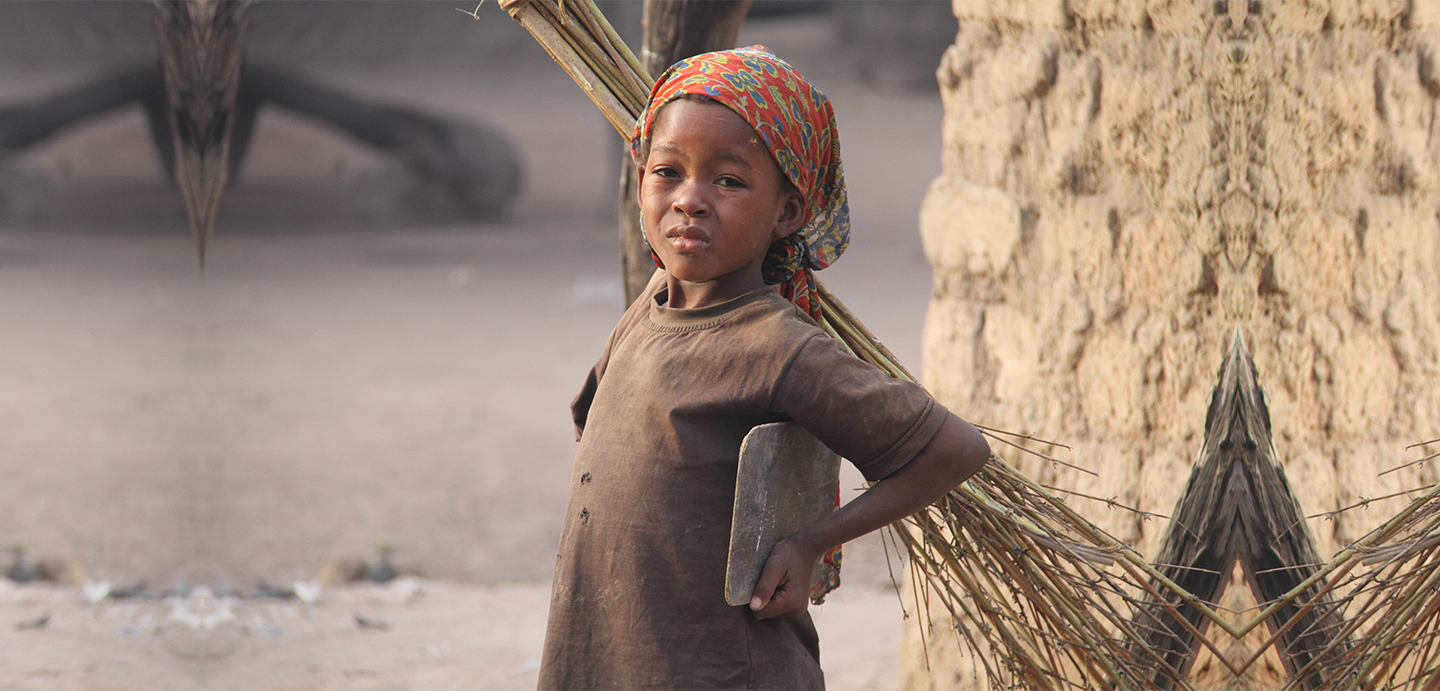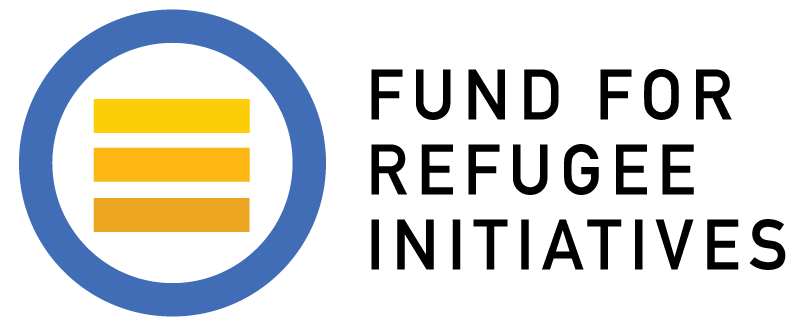
Hello, World!
FUNDING REFUGEE INITIATIVES AND EDUCATION WITH A FOCUS ON GIRLS AND YOUNG WOMEN.
Sweeper on the way to school. Maro Camp, South Chad, 2010.
One hundred thousand refugees from the war-torn Central African Republic (CAR) live in six camps administered by the United Nations High Commission for Refugees in southern Chad. Four camps are in the vicinity of Goré, a large village in SW Chad where UNHCR has its headquarters. The others are interspersed along three hundred miles of the border with CAR.
The Chad Relief Foundation, now the Fund for Refugee Initiatives, was founded in 2007 by Bill Felstiner and Richard Appelbaum, onetime colleagues in the University of California, Santa Barbara sociology department, and Stan Roden, who had been the District Attorney of Santa Barbara County. From 2008 FRI/CRF has aided these refugees in the areas of food, agriculture, health, education, recreation and housing. This assistance has been provided in partnership with non-governmental organizations from the US (Direct Relief, AmeriCares, Vitamin Angels), Italy (ACRA, COOPI), the UK (Mentor), Canada (CARE), Chad (CSSI, Girl Guides) and Lutheran World Services. More than $1.3 million in medical supplies and US-dollar support has been delivered to these refugees who, having no political significance, are often ignored by the world community.
The Fund for Refugee Initiatives is an all-volunteer organization — no paid staff, no rented office. Its current efforts involve supporting education, particularly of girls and young women, and enabling refugee committees to finance individual and group refugee initiatives. These efforts are carried out jointly with ACRA, an Italian non-governmental organization that has been active in Chad since 1968.
On this website, you can click on most photos for a larger view,
CRF/FRI support of education began in 2008 when it joined UNICEF in building and equipping an eight-room middle school adjacent to the Amboko and Gondje camps. This middle school at Beureuh expanded to include a high school in 2021. Support is now also provided to middle and high schools serving Dosseye, Doholo, Maro and Haraze camps.
Founded in a belief that the health of refugee communities depends in large measure on the contributions of women, CRF/FRI has focused on the education of girls and young women. This effort has included subsidizing school fees for girls, recruiting and subsidizing women teachers and, most importantly, fully funding the university education of fifteen women, some of whom have returned to work in CRF/FRI supported schools.
FRI began planning to provide direct support to individual and group refugee initiatives in 2020. After negotiations with ACRA, UNHCR and the local prefect a call for proposals was issued in six camps through word of mouth, bulletin boards and local radio. Expecting a hundred or so proposals, FRI was surprised by over 3,000 submissions, handwritten in rudimentary French. In 2021-22, hundreds of applications were reviewed by FRI Board members and funding was provided as described below.
Gondje
Sanitation, waste matter
Sensitization girls
Veterinarian services
Sex education
Community daycare
Public hygiene
850
4100
1100
3192
4200
3500
Doholo
Literacy
Electrification
Dance troupe
Cohabitation with locals
Tailoring instruction
Funded Refugee Initiatives by Camp
US$
4400
3300
850
1994
895
Dosseye
Sexual violence
Breastfeeding
Fruit tree farms
Education via soccer
Childcare
3500
3600
3820
820
1750
Amboko
Soccer
Market electricity
Community center trees
IT, computer training
740
770
830
900
Haraze/Moyo
Sanitation
Menstrual hygiene
Total
1100
2450
48,661
